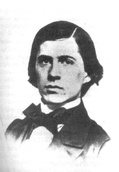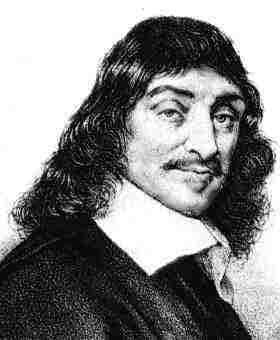 |
 |
 |
 |
Peirce et Descartes : Une question de méthode(s)
by James Crombie, Ph.D.
Pointe-de-l'Église, Nova Scotia, Canada
A careful reading of Charles Sanders Peirce's important article "The Fixation of Belief" shows clearly that much of what Peirce has to say is aimed squarely at Descartes' Discourse on Method, written over two centuries earlier. Peirce calls into question certain basic aspects of Descartes' views on method, especially concerning the nature and role of doubt in inquiry. Peirce suggests a more general conception of the notion of "inquiry" than is generally held, and proposes a taxonomy of four basic methods of inquiry (as defined). These are: the method of tenacity, the method of authority, the a priori method and, lastly, the "scientific" method. This latter method, which one rightly suspects to be the one which Peirce particularly favours, in spite of the ironical praise lavished on the other three, is founded on a concept of "reality" which is quite novel, turning on its head, so to speak, the standard correspondence theory of truth held by most philosophers, including Descartes. Instead of defining truth as that opinion which "corresponds" to reality, Peirce defines reality as the object of a true opinion, a true opinion being defined as one in which all sincere inquirers tend to converge. The article includes a brief introduction to the contributions of both Peirce and Descartes to the mathematics, logic and general science of their respective centuries, as well as a comparative study of Descartes' Discourse on Method and Peirce's "Comment se fixe la croyance" (1877-78). Reference is also made to Peirce's review of Fraser's edition of the Works of Berkeley.
| The article corresponding to the above ABSTRACT was originally published in La Revue de l'Université Sainte-Anne (1993), pp. 48-72. |